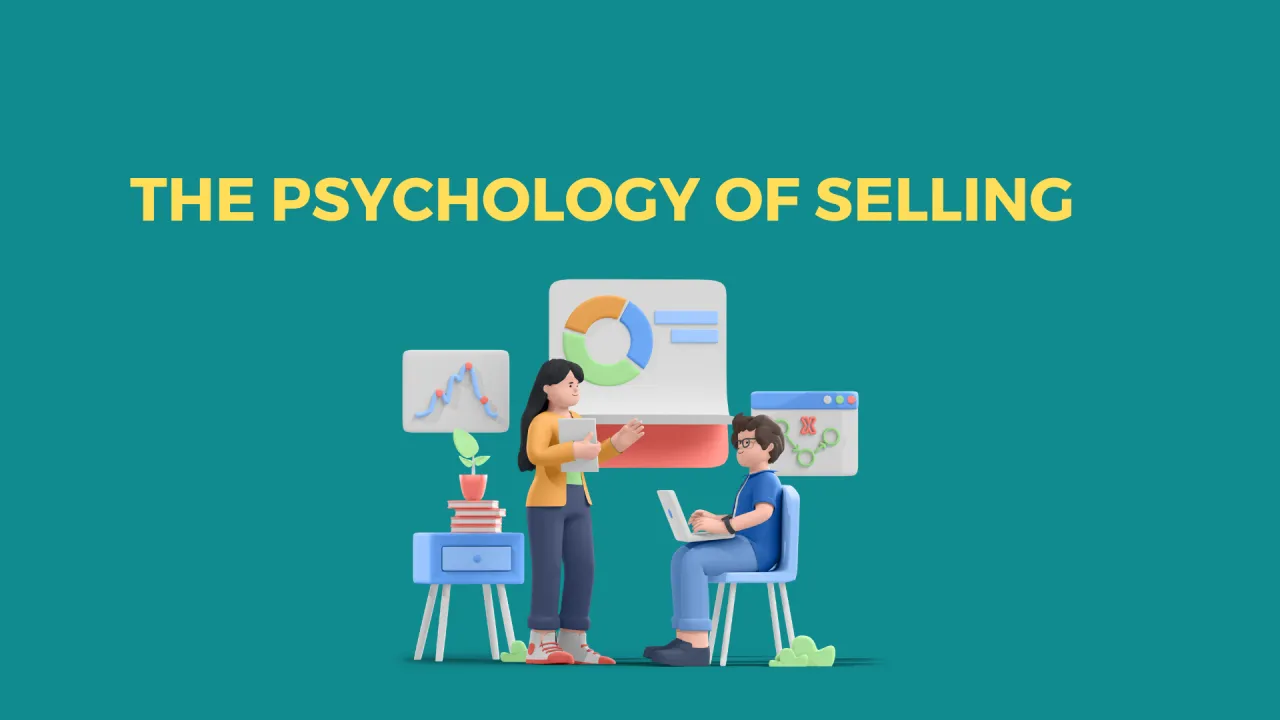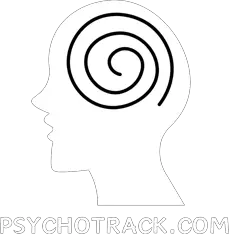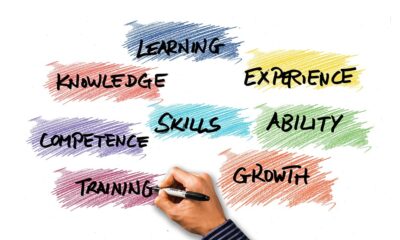Psychology of Things
How does the psychology of selling influence consumer behavior?

In this article, we will explore the fascinating relationship between the psychology of selling and consumer behavior. We will discuss how various psychological principles are utilized by sales professionals to influence the buying decisions of consumers. By understanding the tactics used in selling, we can gain insight into our own purchasing habits and become more informed consumers.
How does the psychology of selling influence consumer behavior?
The psychology of selling plays a crucial role in shaping consumer behavior. Sales professionals harness various psychological principles to persuade customers to make a purchase. One of the key tactics used in selling is creating a sense of urgency. By highlighting limited-time offers or limited stock availability, salespeople tap into consumers’ fear of missing out and drive them to make a quick decision.
Another psychological strategy commonly employed in selling is social proof. Consumers are more likely to buy a product if they see others endorsing it. This is why sales professionals often showcase testimonials, ratings, and reviews to demonstrate that their product is popular and trusted by many.
How do emotions influence consumer behavior in sales?
Emotions play a significant role in influencing consumer behavior in sales. Sales professionals understand that emotional appeals can be more compelling than rational arguments when it comes to making a purchase. For example, using storytelling to evoke feelings of nostalgia, joy, or excitement can create a strong emotional connection with the consumer.
In addition, sales professionals often leverage the psychology of color to evoke specific emotions in consumers. For example, using red to create a sense of urgency or blue to convey trust and reliability. By tapping into consumers’ emotions, sales professionals can influence their decision-making process and drive them towards making a purchase.
What is the scarcity principle in sales?
The scarcity principle is a psychological strategy used in sales to create a sense of urgency and exclusivity. By highlighting limited quantities or limited-time offers, sales professionals tap into consumers’ fear of missing out and drive them to make a purchase. The scarcity principle triggers the impulse to buy now before the product is no longer available, leading to increased sales and conversion rates.
Additionally, the scarcity principle can create a perception of high demand and desirability for the product, further motivating consumers to make a purchase. Sales professionals often use phrases like “limited stock available” or “offer expires soon” to leverage the scarcity principle and encourage consumers to act quickly.
How does social proof influence consumer behavior in sales?
Social proof is a powerful psychological principle that influences consumer behavior in sales. Consumers are more likely to trust and buy a product if they see others endorsing it. Sales professionals leverage social proof by showcasing testimonials, ratings, reviews, and user-generated content to demonstrate that their product is popular, trusted, and recommended by others.
In addition, sales professionals often use influencer marketing to leverage social proof. By partnering with influencers who have a large following and a loyal fan base, sales professionals can reach a wider audience and leverage the influence of the influencer to drive sales. Social proof creates a sense of trust and credibility around the product, making consumers more likely to make a purchase.
Conclusion
The psychology of selling has a profound influence on consumer behavior. By understanding the tactics used in selling, we can become more informed consumers and make more conscious buying decisions. Sales professionals leverage various psychological principles, such as creating a sense of urgency, eliciting emotions, using the scarcity principle, and leveraging social proof, to influence consumer behavior and drive sales. By recognizing these tactics, consumers can navigate the world of sales with greater awareness and make purchasing decisions that align with their values and preferences.
FAQs
1. How can I resist the urge to buy impulsively?
To resist the urge to buy impulsively, try to pause and take a moment to evaluate whether the purchase is truly necessary and aligns with your values and needs. Consider setting a budget and sticking to it to prevent impulsive spending. Additionally, research the product thoroughly to ensure it meets your requirements before making a purchase.
2. What role does marketing play in influencing consumer behavior?
Marketing plays a significant role in influencing consumer behavior by creating awareness, generating interest, and encouraging purchase decisions. Marketers utilize various strategies, such as emotional appeals, social proof, and persuasive messaging, to influence consumer perceptions and drive sales.
3. How can I identify manipulative sales tactics?
Manipulative sales tactics often involve creating false scarcity, using guilt or fear to pressure consumers into making a purchase, or withholding crucial information. To identify manipulative tactics, be wary of high-pressure sales tactics, overly aggressive sales representatives, and deals that seem too good to be true.
4. What are some ethical considerations in sales psychology?
Ethical considerations in sales psychology involve being transparent, honest, and respectful towards consumers. Sales professionals should avoid deceptive practices, manipulation, and coercion in their sales tactics. It is important to prioritize consumer welfare and build trust through ethical conduct.
5. How can I become a more informed consumer?
To become a more informed consumer, research products and services before making a purchase, compare prices, read reviews and ratings, and consider the ethical practices of the brand. Stay informed about marketing tactics and psychological strategies used in sales to make more conscious buying decisions.
Psychology of Things
How does psychology influence economic decision-making?

In this article, we will explore how psychology plays a crucial role in shaping economic decision-making. Understanding human behavior, cognitive biases, and emotions can provide valuable insights into why people make the choices they do in the realm of economics.
What is behavioral economics?
Behavioral economics combines insights from psychology and economics to study how individuals make decisions in various scenarios. Traditional economics assumes that people are rational and always act in their best interest. However, behavioral economics recognizes that humans are prone to biases and irrationality, which can influence their economic decisions.
For example, the concept of loss aversion suggests that individuals are more sensitive to losses than gains. This tendency can lead to risk-averse behavior in financial decision-making. By understanding these psychological factors, economists and policymakers can design interventions to nudge people towards making better choices.
How do cognitive biases impact economic decision-making?
Cognitive biases are systematic patterns of deviation from rationality in judgment. These biases can affect how individuals perceive information, evaluate risks, and make decisions. One common cognitive bias is confirmation bias, where people tend to seek out information that confirms their existing beliefs while ignoring contradictory evidence.
In the context of economics, cognitive biases can lead to suboptimal decision-making. For instance, anchoring bias occurs when individuals rely too heavily on an initial piece of information (the anchor) when making subsequent judgments. This bias can influence pricing, negotiations, and investment decisions.
What role do emotions play in economic decision-making?
Emotions play a significant role in shaping economic decisions. Fear, greed, and overconfidence can cloud judgement and lead to impulsive choices. Investor behavior during financial crises, such as panic selling or hoarding assets, is often driven by emotional responses rather than rational analysis.
Moreover, social factors can amplify emotions and influence decision-making. The herd mentality, where individuals follow the actions of the crowd without critical evaluation, can lead to market bubbles and crashes. Understanding the psychological underpinnings of emotions can help economists anticipate and mitigate the impact of irrational behavior in economic systems.
Can psychological interventions improve economic decision-making?
Psychological interventions, such as nudges and cognitive-behavioral techniques, can help individuals make better economic decisions. Nudges are subtle cues or prompts that steer people towards desired outcomes without restricting their choices. For example, setting defaults for retirement savings or displaying energy consumption feedback can encourage positive economic behavior.
Cognitive-behavioral therapy (CBT) can also be applied to financial decision-making by addressing psychological barriers and promoting healthier money habits. By combining insights from psychology with economic incentives, policymakers and financial institutions can design interventions that empower individuals to make more informed and rational choices.
Conclusion
Psychology plays a crucial role in influencing economic decision-making. By understanding behavioral economics, cognitive biases, emotions, and psychological interventions, economists can gain valuable insights into why individuals make certain choices in the economic realm. By integrating psychological principles into policy-making and financial services, we can create a more informed and sustainable economic environment.
FAQs
1. Can economics and psychology be integrated to improve decision-making?
Yes, behavioral economics combines insights from psychology and economics to understand how individuals make decisions in various scenarios. By recognizing cognitive biases, emotions, and social influences, we can design interventions to nudge people towards better choices.
2. How do cognitive biases impact economic decision-making?
Cognitive biases can lead to suboptimal decision-making by influencing how individuals perceive information, evaluate risks, and make choices. These biases, such as confirmation bias and anchoring bias, can affect pricing, negotiations, and investment decisions.
3. What role do emotions play in economic decision-making?
Emotions can cloud judgment and lead to impulsive decisions in economics. Fear, greed, and overconfidence can drive behavior during financial crises, while social factors like the herd mentality can amplify irrational responses in markets.
4. How can psychological interventions improve economic decision-making?
Nudges and cognitive-behavioral techniques can help individuals make better economic choices by providing subtle prompts and addressing psychological barriers. By combining insights from psychology with economic incentives, policymakers can design interventions that empower rational decision-making.
5. What are some examples of psychological interventions in economics?
Examples of psychological interventions include setting defaults for retirement savings, displaying energy consumption feedback, and using cognitive-behavioral therapy to promote healthier money habits. These interventions aim to improve decision-making and financial well-being.
Psychology of Things
– What factors influence a woman’s arousal and desire?

In this article, we will explore the various factors that can influence a woman’s arousal and desire. Understanding these factors can help individuals navigate their own experiences and relationships with a better understanding of the complexities of human sexuality.
What role does physical attraction play in a woman’s arousal?
Physical attraction is a key factor in a woman’s arousal and desire. Research shows that women are often drawn to individuals who exhibit traits associated with health and fertility, such as facial symmetry and a strong jawline. Additionally, factors such as body language, grooming, and overall appearance can also impact a woman’s level of attraction to a potential partner.
It’s important to note that physical attraction is subjective and can vary from person to person. Some women may be more drawn to certain physical characteristics, while others may prioritize emotional connection and personality traits.
How does emotional intimacy influence a woman’s desire?
Emotional intimacy plays a crucial role in a woman’s desire and arousal. Building a strong emotional connection with a partner can create a sense of trust, security, and comfort that can enhance a woman’s willingness to engage in sexual activity. Communication, empathy, and mutual respect are key components of emotional intimacy that can deepen a woman’s desire for her partner.
Studies have shown that women often report feeling more sexually satisfied when they feel emotionally close to their partner. This bond can help to increase feelings of arousal and desire, leading to a more fulfilling sexual experience for both partners.
What impact does stress have on a woman’s arousal?
Stress can have a significant impact on a woman’s arousal and desire. High levels of stress can trigger the release of cortisol, a hormone that can interfere with the body’s natural arousal response. This can lead to a decrease in sexual desire and an increase in feelings of anxiety and tension.
It’s important for individuals to prioritize self-care and stress management techniques in order to reduce the negative effects of stress on sexual desire. Engaging in activities such as exercise, mindfulness, and relaxation can help to lower stress levels and improve overall wellbeing, which can in turn positively impact a woman’s arousal and desire.
How do cultural beliefs and societal expectations influence a woman’s sexuality?
Cultural beliefs and societal expectations can have a powerful influence on a woman’s sexuality. Messages from media, family, and religious institutions can shape a woman’s attitudes towards sex, relationships, and her own body. Society often places pressure on women to conform to certain standards of beauty and behavior, which can impact their feelings of arousal and desire.
It’s important for individuals to challenge these societal norms and cultivate a positive and accepting attitude towards their own sexuality. By embracing diversity and celebrating differences, women can feel empowered to explore their desires and express their sexuality in a way that feels authentic and fulfilling to them.
How can past experiences impact a woman’s current level of arousal?
Past experiences, both positive and negative, can have a lasting impact on a woman’s current level of arousal and desire. Traumatic experiences, such as sexual assault or abuse, can create feelings of fear, shame, and disconnection that can hinder a woman’s ability to feel arousal and engage in sexual activity.
Conversely, positive experiences, such as a loving and supportive relationship, can enhance a woman’s sense of trust, safety, and pleasure, leading to increased levels of arousal and desire. It’s important for individuals to seek therapy and support in order to heal from past trauma and cultivate a healthy and fulfilling relationship with their own sexuality.
Conclusion:
Overall, a woman’s arousal and desire are influenced by a complex interplay of factors, including physical attraction, emotional intimacy, stress, cultural beliefs, societal expectations, and past experiences. By understanding and addressing these factors, individuals can cultivate a healthy and fulfilling sexual relationship with themselves and their partners.
FAQs:
1. Can medication affect a woman’s arousal?
Yes, certain medications, such as antidepressants and hormonal contraceptives, can impact a woman’s arousal and desire. It’s important to consult with a healthcare provider if you have concerns about the effects of medication on your sexual health.
2. How can communication improve a woman’s sexual satisfaction?
Open and honest communication with a partner can enhance a woman’s sexual satisfaction by creating a safe and supportive environment for sharing desires, boundaries, and preferences. It’s important to prioritize communication in order to build a strong and fulfilling sexual relationship.
3. What role does self-care play in enhancing a woman’s arousal?
Self-care practices, such as exercise, mindfulness, and relaxation, can improve a woman’s overall wellbeing and positively impact her level of arousal and desire. Taking care of your physical and mental health is essential for cultivating a healthy and fulfilling sexual relationship with yourself and your partner.
4. How can therapy help women address past trauma and improve their sexual wellness?
Therapy can provide a safe and supportive space for women to process and heal from past trauma, such as sexual assault or abuse. A trained therapist can offer guidance and techniques to help women overcome feelings of fear, shame, and disconnection, and cultivate a healthy and fulfilling relationship with their sexuality.
5. What can individuals do to challenge societal norms and embrace their sexuality?
Individuals can challenge societal norms by educating themselves, seeking out diverse perspectives, and engaging in open conversations about sexuality and gender. By celebrating differences and embracing diversity, women can feel empowered to explore their desires and express their sexuality in a way that feels authentic and fulfilling to them.
Psychology of Things
Exploring the Relationship Between Psychology and Fashion: How Do Our Clothing Choices Reflect Our Inner Minds?

In this article, we will delve into the fascinating relationship between psychology and fashion, and how our clothing choices can reveal insights into our inner minds. Have you ever wondered why we are drawn to certain styles, colors, or brands when it comes to our wardrobe? Let’s explore the deeper meaning behind our fashion choices and what they say about our personalities and emotions.
How does our upbringing influence our fashion choices?
Our upbringing plays a significant role in shaping our fashion preferences. The way we were raised, the values instilled in us by our parents, and our cultural background all have an impact on the clothes we choose to wear. For example, someone who grew up in a conservative household may prefer more modest and classic styles, while someone raised in a more liberal environment may be more experimental with their fashion choices.
Moreover, our childhood experiences and memories can also influence our clothing choices. Certain colors, patterns, or fabrics may evoke positive emotions from our past, leading us to gravitate towards them in our wardrobe. Our upbringing forms the foundation of our fashion identity, reflecting who we are and where we come from.
How do our emotions affect the way we dress?
Our emotions play a significant role in determining how we dress on a daily basis. When we feel happy, confident, or in control, we are more likely to choose bright colors, bold patterns, and statement pieces that reflect our positive mood. On the other hand, when we are feeling sad, anxious, or insecure, we may opt for darker colors, loose-fitting clothing, or comfort clothes that provide a sense of security.
Furthermore, our emotions can also influence our shopping habits. Retail therapy is a common phenomenon where people seek comfort and distraction by purchasing new clothes. During times of stress or sadness, we may be more inclined to indulge in retail therapy as a way to lift our spirits and boost our self-esteem. Our emotions not only impact how we dress but also how we shop for clothes.
Can fashion be used as a form of self-expression?
Fashion is a powerful form of self-expression that allows us to communicate our personality, values, and beliefs to the world. The clothes we choose to wear serve as a visual representation of who we are and what we stand for. Whether we prefer minimalist and understated styles or bold and avant-garde looks, our fashion choices speak volumes about our inner selves.
Moreover, fashion can be a tool for empowerment and confidence-building. When we wear clothes that make us feel good about ourselves, we exude a sense of self-assurance and authenticity. By expressing ourselves through fashion, we can assert our individuality and uniqueness in a world that often tries to box us into stereotypes and norms.
How does social media influence our fashion choices?
Social media has revolutionized the way we consume and engage with fashion. Platforms like Instagram, Pinterest, and TikTok have become virtual runways where trends are set, and styles are showcased. Influencers and celebrities play a significant role in shaping our fashion choices, as we look to them for inspiration and guidance on what to wear.
Moreover, social media algorithms and targeted ads have personalized our shopping experiences, showing us products and brands that align with our interests and preferences. The constant exposure to curated content and aspirational images on social media can influence our perception of beauty, style, and fashion, leading us to emulate the looks we see online in our own wardrobes.
Conclusion
In conclusion, the relationship between psychology and fashion is a complex and multifaceted one. Our clothing choices can reveal a lot about our inner minds, including our upbringing, emotions, self-expression, and social influences. By understanding the psychological factors that drive our fashion decisions, we can gain deeper insights into ourselves and our identities. Fashion is not just about looking good; it’s about feeling good and expressing who we truly are.
FAQs
1. How can I use fashion to improve my mood?
Fashion can be a powerful tool for boosting your mood and self-esteem. Choose clothes that make you feel confident, comfortable, and authentic. Experiment with different styles, colors, and silhouettes to find what resonates with you personally. Remember that fashion is a form of self-expression, so have fun with it and don’t be afraid to step out of your comfort zone.
2. Can my fashion choices impact how others perceive me?
Absolutely! The way you dress can influence how others perceive and interact with you. Whether you want to make a bold statement or blend in with the crowd, your fashion choices can signal your personality, values, and aspirations. Be mindful of the message you want to convey through your clothes and choose outfits that reflect your authentic self.
3. How can I stay true to my personal style in a world of fast fashion and trends?
Staying true to your personal style in a world of fast fashion and trends can be challenging, but it’s not impossible. Focus on building a versatile and timeless wardrobe filled with pieces that truly speak to your aesthetic and preferences. Invest in quality staples that can be mixed and matched to create a signature look that is uniquely yours.
4. Is it important to follow fashion trends to be stylish?
While following fashion trends can be fun and inspiring, it’s not a requirement to be stylish. True style is about expressing your individuality and creativity through your clothing choices, regardless of what’s currently in vogue. Find what works for you and makes you feel good, rather than blindly following trends that may not align with your personal taste.
5. How can I use fashion as a form of self-care?
Using fashion as a form of self-care involves cultivating a positive and empowering relationship with your wardrobe. Treat yourself to pieces that make you feel happy, confident, and comfortable. Practice mindfulness when getting dressed, focusing on how your outfit makes you feel on a deep emotional level. Remember that self-care is about honoring and nurturing yourself, and fashion can be a beautiful tool for self-expression and self-love.

 Psychology of Things12 months ago
Psychology of Things12 months ago– How does the psychology of advertising influence consumer behavior?

 Psychology of Things11 months ago
Psychology of Things11 months agoHow does psychology influence economic decision-making?

 Psychology of Founders12 months ago
Psychology of Founders12 months agoWho Are the Founding Fathers of Psychology?

 Psychology of Founders12 months ago
Psychology of Founders12 months agoWho is the Father of Forensic Psychology? Exploring the Pioneers in the Field

 Psychology of Things12 months ago
Psychology of Things12 months agoHow does the psychology of fear impact our decision making?

 Psychology of Studies12 months ago
Psychology of Studies12 months agoWhat recent breakthroughs have online psychology studies made in understanding human behavior?

 Psychology of Things12 months ago
Psychology of Things12 months agoHow does our psychology influence our relationship with money?

 Psychology of Founders12 months ago
Psychology of Founders12 months agoWhat contributions did Wilhelm Wundt make to psychology to earn the title of founder?
































